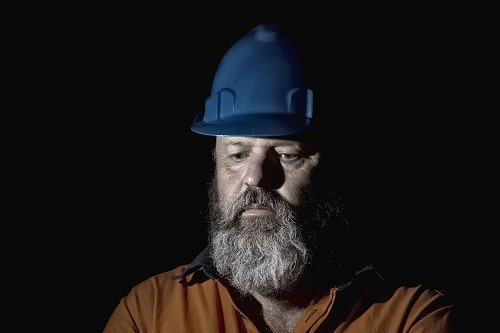Work-related fatalities in Great Britain have risen for the second year in a row, new data released by the Health and Safety Executive (HSE) has shown, revealing a trend reversal which British Safety Council says is a “cause for concern”.
News
Work-related deaths in Britain rise for second year running
Provisional RIDDOR (Reporting of Injuries, Diseases and Dangerous Occurrences Regulations) data for 2023/24 shows that 138 workers were killed in work-related accidents – an increase of two compared with the previous year. The 136 workplace fatalities figure recorded in 2022/23 itself represented an increase of 13 compared with 2021/22, when 123 people were killed at work.
 The construction sector saw the most fatalities in 2023/24, with 51 workers losing their lives – an increase of four compared with the previous year. Photograph: iStock/sorn340
The construction sector saw the most fatalities in 2023/24, with 51 workers losing their lives – an increase of four compared with the previous year. Photograph: iStock/sorn340
Before this, during the Covid-19 pandemic, in 2020/21 there were 145 recorded work-related fatalities. The year prior to that had seen the lowest number of workplace deaths in a decade, at 113.
The construction sector saw the most fatalities in 2023/24, with 51 workers losing their lives – an increase of four compared with the previous year. The forestry and fishing industry had the second-highest number of deaths, at 23, followed by manufacturing, at 16. When considering the fatal injury rate per 100,000 workers, however, agriculture, forestry and fishing was the biggest killer.
Responding to the latest figures, British Safety Council’s director of education and membership, Dr Julie Riggs, said: “The rise in work-related fatalities, as reported by the Health and Safety Executive, serves as a stark reminder that we cannot become complacent about the health and safety of workers. Put simply, the consequences of poor health and safety are too great a price to pay.”
She added: “For 50 years, the general direction of travel has seen safer workplaces with falling numbers of workplace deaths and non-fatal injuries; that for a second year this trend has reversed is cause for concern.
“It sends a message that we need to prioritise worker health and safety, understand the causes of rising fatalities, and take targeted action to return to falling figures and safer workplaces for all.”
Falls from height remained the most common fatal accident, resulting in 50 deaths in 2023/24 – up from 40 the previous year. Falls from height accounted for 36 per cent of all worker deaths over the year. The annual average number of falls from height fatalities over the five years from 2019/20 to 2023/24 was 37.
“This proportion is slightly elevated from previous years and falls from height remain the lead cause of fatal injury to workers,” said HSE.
Writing in Safety Management earlier this year, Peter Bennett OBE, chair of the Access Industry Forum, called for a more simplified incident reporting system for falls, noting that it would “allow lessons to be learned about the causes and most effective preventive measures”.
The second biggest cause of worker deaths in Great Britain in 2023/24 was strikes by moving vehicles, which killed 25 workers during the period.
Just over a third (36 per cent) of fatal injuries to workers in 2023/24 involved self-employed people. Over the five-year period from 2019/20 to 2023/24, 65 per cent of fatal injuries in agriculture, forestry and fishing involved self-employed workers, compared with 41 per cent in construction and 12 per cent in manufacturing.
NEWS

Employers unprepared for menopause duties, research suggests
By Belinda Liversedge on 24 February 2026
Most employers remain uncertain about duties coming into force to support female workers undergoing the menopause, a new poll suggests.

Ramadan: what employers should know about supporting their workforce
By Belinda Liversedge on 18 February 2026
As Ramadan begins this week, UNISON has reminded employers to think about reasonable adjustments for their Muslim workforce’s religious observance such as fasting, prayers, and flexible schedules.

Nearly half of UK workers afraid to flag risks, finds new research
By Belinda Liversedge on 10 February 2026
A significant “silence gap” is threatening UK workplace safety and operational integrity, according to new data released by training provider Mental Health First Aid (MHFA) England.



